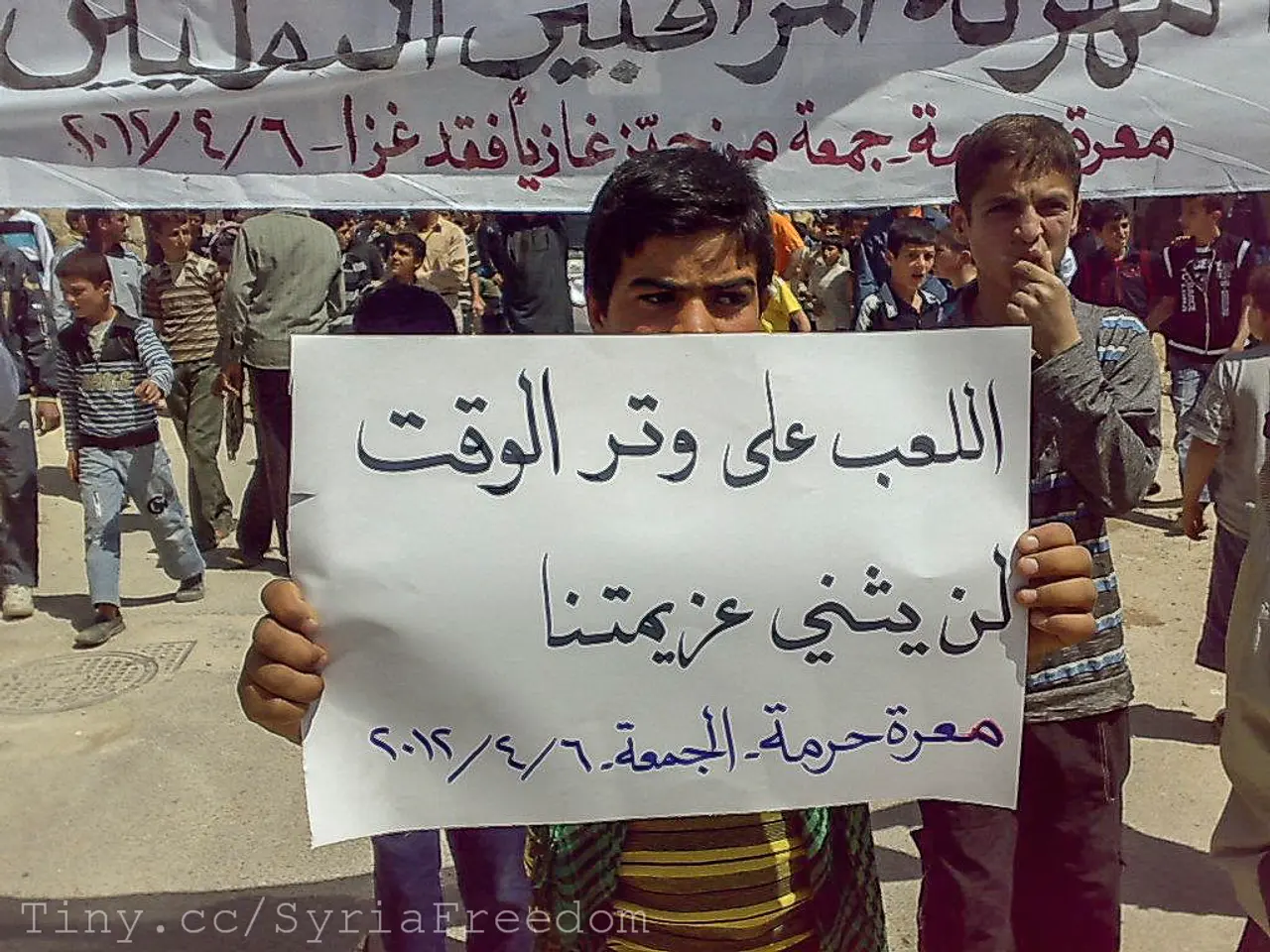Coerced situation: individuals manipulated to act against their will
In the heart of Düsseldorf, Germany, a unique special exhibition sheds light on a little-noticed yet significant chapter of the city's history – the forced sterilization of thousands of individuals during the Nazi era. This practice, part of a broader eugenics policy aimed at racial hygiene, targeted those deemed "genetically inferior," including people with mental illnesses, disabilities, or classified as "asocial."
The special exhibition, open Tuesday to Friday and Sunday from 11 am to 5 pm, and Saturday from 1 pm to 5 pm, researches and presents this dark chapter using local and regional sources. The forced sterilization was usually a consequence of being targeted by the Nazi idea of a "healthy body of the people."
The exhibition is a testament to the city's past, providing a platform for understanding the scale and impact of forced sterilization in Düsseldorf. It serves as a reminder of the thousands of people affected by this procedure, many of whom were entire families.
For those interested in delving deeper into the history and records of forced sterilization in Düsseldorf, the Düsseldorf City Archive (Stadtarchiv Düsseldorf) is the primary resource. The archive holds municipal documents, health authority records, and potentially records from hospitals or institutions involved in implementing Nazi policies.
To access these valuable resources, visitors can contact the archive directly to inquire about collections related to the Nazi era, public health policies, and eugenics programs. They can also request access to files from the 1930s to 1945 concerning health offices, hospitals, or welfare departments.
The special exhibition also highlights how this practice paved the way for the "euthanasia" murders carried out by the Nazi state. It is a part of the ongoing research and presentation of the history of the "Hereditary Health Court" in Düsseldorf during the Nazi era.
Admission to the exhibition is free, and guided tours for small groups must be booked in advance by phone at 0211-89-96205. The authority responsible for these decisions was located at Mühlenstraße.
For those seeking a broader historical context or survivor narratives, German Holocaust and Nazi history research institutions or memorial sites can provide further insight into forced sterilization and Aktion T4 policies.
This approach allows for a thorough understanding of the local history and individual experiences under the forced sterilization program during the Nazi era. It serves as a powerful reminder of the past, encouraging reflection and education for future generations.
- The special exhibition in Düsseldorf, Germany, focusing on the city's disturbing history of forced sterilization during the Nazi era, is open for visitors from Tuesday to Friday and Sunday, and on Saturday, offering insights into this dark chapter using local and regional sources.
- The forced sterilization, a consequence of the Nazi idea of a "healthy body of the people," was a part of a broader eugenics policy that targeted individuals with mental illnesses, disabilities, or classified as "asocial."
- For those wanting to delve deeper into the history and records of forced sterilization in Düsseldorf, the Düsseldorf City Archive (Stadtarchiv Düsseldorf) is the primary resource, holding municipal documents, health authority records, and potentially records from hospitals or institutions involved in implementing Nazi policies.
- The special exhibition further reveals how the practice of forced sterilization led to the "euthanasia" murders carried out by the Nazi state, and it is presented alongside survivor narratives, offering a broader historical context.








